|
|
| |
|
| |

Hexagon Series on
(Human, Environmental Security and Peace: HESP)
Edited by
Hans Günter Brauch,
AFES-PRESS, chairman
Free University of Berlin (Ret.)
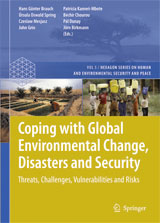 |
HEXA-
GON
Series
Vol 5
GEHSHA
Vol. 3 |
Hans Günter Brauch, Úrsula Oswald Spring, Czeslaw Mesjasz, John Grin, Patricia Kameri-Mbote, Béchir Chourou, Pal Dunay, Jörn Birkmann (Eds.): Coping with Global Environmental Change, Disasters and Security – Threats, Challenges, Vulnerabilities and Risks. Hexagon Series on Human and Environmental Security and Peace, vol. 5 (Berlin – Heidelberg – New York: Springer-Verlag, 2011)
ISBN: 978-3-642-17775-0 (Print)
ISBN: 978-3-642-17776-7 (Online)
DOI 10.1007/978-3-642-17776-7
Order this book on Springer Website
Electronic Version of book and individual chapters
Order form
Book Announcements and Book Reviews
Book Presentations and Press Conferences
Book Aid Project on this Book |
Content
Editors
Forewords
Prefaces
Authors (biographies)
Publisher
Reviewers
|
This policy-focused Global Environmental and Human Security Handbook for the Anthropocene (GEHSHA) addresses new security threats, challenges, vulnerabilities and risks posed by global environmental change and disasters. In 5 forewords, 5 preface essays 95 peer reviewed chapters, 164 authors from 48 countries analyse in 10 parts concepts of military and political hard security and economic, social, environmental soft security with a regional focus on the Near East, North and Sub-Sahara Africa and Asia and on hazards in urban centres. The major focus is on coping with global environmental change: climate change, desertifi¬ca¬tion, water, food and health and with hazards and strategies on social vulnerability and resilience building and scientific, international, regional and national political strategies, policies and measures including early warning of conflicts and hazards. The book proposes a political geo-ecology and discusses a ‘Fourth Green Revolution’.
Forewords by Achim Steiner, Executive Director of UNEP; Konrad Osterwalder, Rector, UNU; Jean-Francois Bureau, Assistant Secretary General, NATO; Joy Ogwu, former Foreign Minister of Nigeria; His Royal Highness, Prince Hassan Bin Talal of Jordan.
With Prefaces by Professor Dr. Paul C. Crutzen, Nobel Laureate in Chemistry, Max-Planck Society for the Advancement of Science, Mainz; His Excellency Ambassador Jayantha Dhanapala, President, Pugwash Conferences on Science and World Affairs, recipient of the Nobel Peace Prize 1995; Professor Dr. Ulrich Beck, University of Munich and LSE; Dr. Hania Zlotnik, Director, UN Populations Division, United Nations, New York; Dr. Christoph Müller, Dr. Hermann Lotze-Campen, Dr. Veronika Huber, Dr. Alexander Popp, Dr. Anastasia Svirejeva-Hopkins, Mr. Michael Krause and Prof. Dr. Hans Joachim Schellnhuber, Director, Potsdam Institute of Climate Impact Research.
Contents: Forewords.- Prefaces.- Part I Introduction.- Part II Securitization of Global Environmental Change.- Part III Economic, So-cial, Environmental and Human Security Dangers in the Near East, Africa and Asia.- Part IV Threats, Challenges, Vulnerabilities and Risks for Urban Centres in Hazards and Disasters.- Part V Coping with Climate Change, Soil and Desertification, Water Management, Food and Health.- Part VI Coping with Hazards, Social Vulnerability and Resilience Building.- Part VII Coping with Global Env. Change: Scientific, International and National Political Strategies, Policies and Measures.- Part VIII Remote Sensing, Vulnerability Mapping and Indicators of Env. Security Challenges.- Part IX Towards an Improved Early Warning of Conflicts and Hazards.- Part X Summary and Conclusions.
All chapters were anonymously peer reviewed. |
| |
|
|
|
 |
Hans Günter Brauch, PD ( Adj. Prof. ) at the Free University of Berlin, chairman of AFES-PRESS, fellow at UNU-EHS in Bonn and editor of this series; he publishes on security and environment issues.
Úrsula Oswald Spring, Professor at National University, Mexico; UNU-EHS chair on social vulnerability; she writes on sustainability, development, gender, disaster, poverty and collaborates with peasants.
|
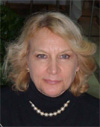 |
| |
|
|
 |
Czeslaw Mesjasz , Assoc. Professor, Vice Dean, Management, Cracow University of Economics; publishes on systems and game theory, conflict resolution, negotiation, economics, finance and security.
John Grin , Professor, Director of the Amsterdam School for Social science Research; publishes on societal transformations in water management, agriculture and health care, and advices practitioners.
|
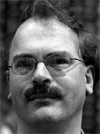 |
| |
|
|
 |
Patricia Kameri-Mbote, Professor, Strathmore University; Programme Director, International Environmental Law Research Centre, Nairobi; she writes on law, development, property, environment and gender.
Béchir Chourou teaches International Relations at the University of Tunis-Carthage in Tunisia and publishes on Euro-Mediterranean relations, food policy and human security in the Arab world. |
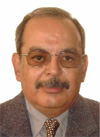 |
| |
|
|
 |
Pal Dunay, Faculty Member, Geneva Centre for Security Policy, Director of International Training Course in Security Policy; he publishes on European security, the post-Soviet space and conventional arms control.
Jörn Birkmann, Adj. Prof. (PD) at Bonn University, Head, Vulnerability Assessment, Risk Management and Adaptive Planning Section, United Nations University, Institute for Environment and Human Security. |
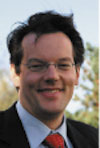 |
| |
|
|
|
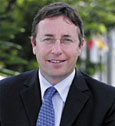 |
Achim Steiner
Under-Secretary General of the United Nations and Executive Director, UN Environment Programme (UNEP) |
So I welcome this volume on Coping with Global Environmental Change, Disasters and Security – Threats, Challenges, Vulnerabilities and Risks and its 95 peer-reviewed chapters as an eye-opener to both the challenges but also the opportunities of our age. I hope that private foundations and donors can ensure that its important ideas, debates and essential reading find their way equally onto the library book shelves of the South as well as the nations of the North.
|
| |
|
|
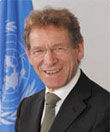 |
Professor Dr. Konrad Osterwalder
Under-Secretary General of the United Nations and Rector, United Nations University |
This book contributes to the mission of the United Nations University system “to resolve the pressing global problems of human survival, development and welfare that are the concern of the United Nations, its Peoples and Member States”. This unique compilation of global scholarship is thought provoking, analytical and very comprehensive. It deserves many readers from all walks of life. It, like the other issues of the Hexagon Series, should be available for those seeking in depth knowledge of the complexities and security implications of the linked social-environmental system we live in.
|
| |
|
|
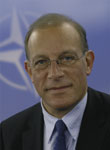 |
Jean-François Bureau
NATO Assistant Secretary General for Public Diplomacy Chairman, Science for Peace and Security (SPS) Committee |
“Coping with Global Environmental Change, Disasters and Security Threats, Challenges, Vulnerabilities and Risks” is a burning issue today. Climate change is a threat to vital resources and can provoke major social, economic and political problems. As such, it has major security dimensions and could act as a “threat multiplier”.
This was already the subject of a workshop that was co-sponsored in 2005 by NATO’s Public Diplomacy Division. The book collates the results and recommendations of this workshop and constitutes a reference to security issues in this field. It raises awareness on global environmental change and its impact on security not only among high-level officials, scientists, but also among citizens. |
| |
|
|
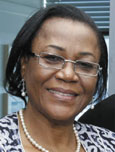 |
Ambassador Prof. Dr. Joy Ogwu
Permanent Representative of the Federal Republic of Nigeria to the United Nations, New York, NY
|
This book deserves many readers in all parts of the world, but especially in those countries where university and research libraries are unable to afford such references books. It is my sincere hope that this high-quality and multidisciplinary study and reference book and its key messages will be made available with the support of private foundations and public donors to the young generation in the global South that will face these challenges to their security in the 21st century. I wish the book-aid project success for the benefit of university libraries and research institutes and their readers in Africa, Asia and Latin America.
|
| |
|
|
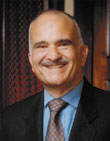 |
HRH Prince El Hassan bin Talal
The Hashemite Kingdom of Jordan |
Environmentally induced population displacement resulting from climate change is now indisputable. … This is a human tragedy on a massive scale. It is also a major threat to global security and could result in global catastrophe costing millions of lives in climate induced wars and natural disasters. … Our composite security needs can only be addressed by humanizing globalization. The ambitious trans-regional cooperation, envisaged in the DESERTEC project’s high tension grid network that would connect European national grids with the WANA region, would foster a new chapter in terms of international energy trade for 'clean, renewable energy'; could secure international energy stability between the EU-Mediterranean countries. |
| |
|
|
|
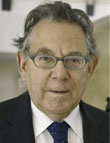 |
Prof. Dr. Paul Crutzen
Nobel Laureate for Chemistry Max Planck Institute for Chemistry Department Atmospheric Chemistry
|
To assign a more specific date to the onset of the ‘Anthropocene’ we propose the latter part of the 18th century, when the global effects of human activities became clearly noticeable, by data retrieved from ice cores, which show the beginning of a growth in the atmospheric concentrations of several ‘greenhouse gases’, in particular CO2 and CH4. Such a starting date also coincides with James Watt’s invention of the steam engine in 1784. |
| |
|
|
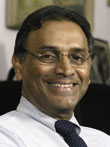 |
Amb. Jayantha Dhanapala
Former UN Under-Secretary General for Disarmament, President, Pugwash Conferences on Science and World Affairs
|
There is no greater task than achieving peace and security through disarmament. … Scientists remain at the centre of weapon laboratories, the military industrial complexes, and energy consuming industries in all countries. National loyalties and protectionist pressures are strong in such situations …
The common humanity of all scientists should act as a code of ethics to ensure nuclear disarmament and to arrest and reverse climate change. The Russell-Einstein Manifesto of 9 July 1955 said, “We appeal, as human beings, to human beings: Remember your humanity, and forget the rest.” It is time to follow this advice before it is too late.
|
| |
|
|
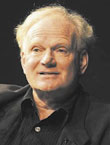 |
Prof. Dr. Ulrich Beck
Professor of Sociology (Emeritus), University of Munich and London School of Economics and Political Science
. |
The narrative of global risk is a narrative of irony. This narrative deals with the involuntary satire, the optimistic futility, with which the highly developed institutions of modern society - science, state, business and military - attempt to anticipate what cannot be anticipated. Socrates has left us to make sense of the puzzling sentence: I know that I know nothing. The fatal irony, into which scientific-technical society plunges us, is, as a consequence of its perfection, much more radical: We don’t know what it is we don’t know - but from these dangers arise, which threaten mankind! |
| |
|
|
 |
Dr. Hania Zlotnik
Director, Populations Division, United Nations, New York
|
Between the late 1920’s and today, the population of the world has more than tripled, passing from 2 billion to nearly 7 billion. … The growth rate of the world population accelerated between the 1920’s and the late 1960’s, passing from 0.5 per cent per year to 2.0 per cent per year. … Because of population momentum, even if the fertility of each country were to reach replacement level tomorrow, the world population would still increase to 9 billion by 2050 and, without further change in fertility and mortality, it would attain 10.1 billion by mid-century and still have a large potential for continued growth.
|
| |
|
|
 |
Dr. Christoph Müller, Dr. Hermann Lotze-Campen, Dr. Veronika Huber, Dr. Alexander Popp, Dr. Anastasia Svirejeva-Hopkins, Michael Krause and Prof. Dr. Hans Joachim Schellnhuber, director of Potsdam Institute of Climate Impact Research |
Climate change poses great threats to many compartments of the Earth System and, as a consequence, to human societies. There is growing scientific evidence that a rise of the global mean temperature by more than 2°C (as compared to pre-industrial levels) would irreversibly harm many ecosystems and most likely exceed the adaptive capacities of many societies. In order to confine global warming to maximally 2°C, major efforts to reduce emissions of greenhouse gases are required. These may even include ‘negative emissions’ of carbon dioxide to be achieved by the second half of this century. |
| |
|
|
More on this book
|
Publisher's Corner
|
This fifth volume of the Hexagon Book Series on
Human, Environmental Security and Peace: HESP
was made possible by a research grant
for AFES-PRESS funded by the

|
|
|